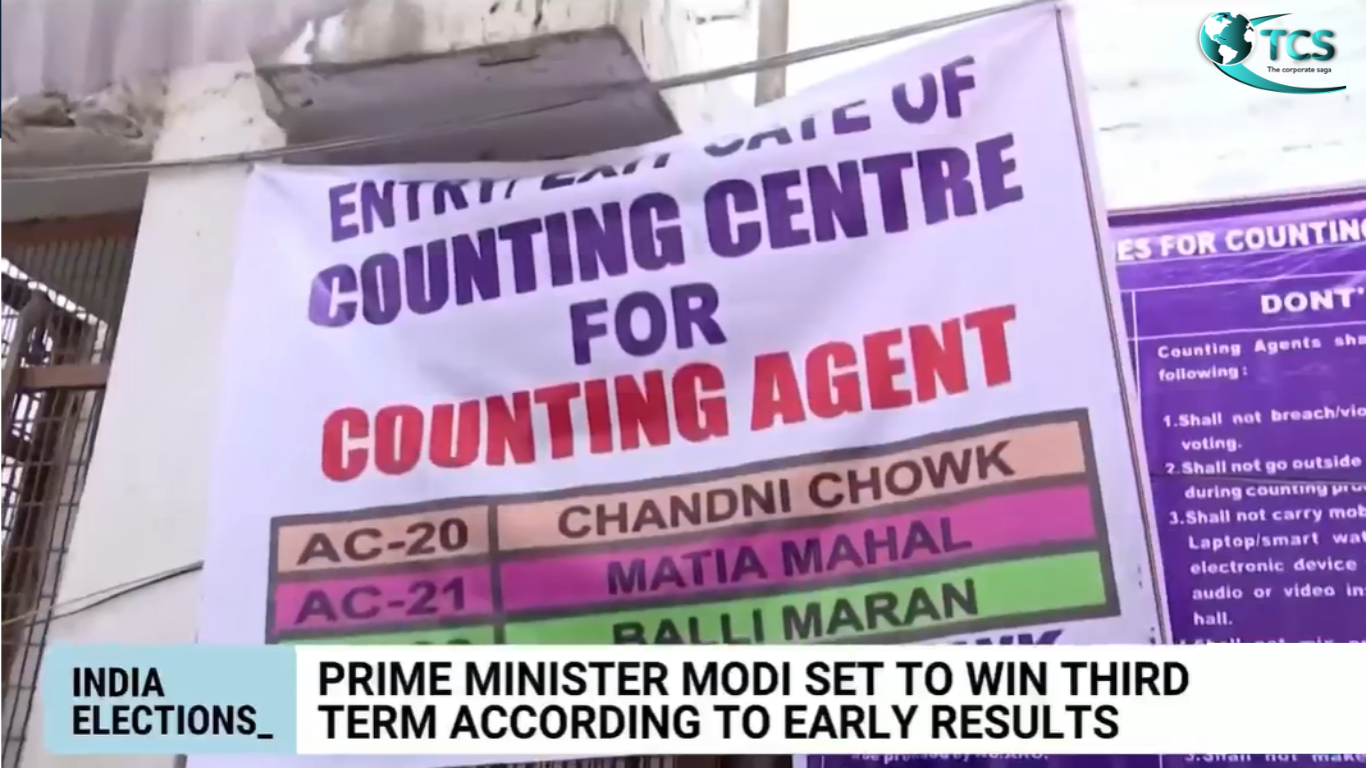India Election Results: Indian PM Modi Claims Victory Even as Voters Deal Him a Surprise Setback

The India election results have taken the nation by storm, with Indian PM Modi claiming victory amidst a political landscape filled with surprises. As the dust settles, it becomes evident that while Modi’s Bharatiya Janata Party (BJP) has retained a strong position, the electorate has delivered a few unexpected blows, showcasing the dynamic nature of India’s democracy.
Understanding the Election Outcome
The India election results reveal a complex picture. The Bharatiya Janata Party, under the leadership of PM Narendra Modi, has managed to secure a significant number of seats, ensuring Modi’s continuation as the Prime Minister. However, the results also indicate a shift in voter sentiment in certain regions, reflecting both satisfaction and discontent with the current administration.
BJP’s Stronghold Remains Intact
The India election results indicate that the BJP continues to dominate in several key states. The party’s robust performance in states like Uttar Pradesh, Gujarat, and Karnataka highlights its enduring appeal among the electorate. Modi’s charismatic leadership and the party’s effective grassroots campaign strategies have played pivotal roles in this success.
Regional Shifts and Surprises
Despite the overall victory, the India election results also point to significant regional shifts. In West Bengal, Mamata Banerjee’s Trinamool Congress (TMC) has made substantial gains, dealing a blow to BJP’s aspirations in the state. Similarly, in states like Punjab and Tamil Nadu, local parties have performed exceptionally well, signaling voter preference for regional leadership over national dominance.
Analyzing Voter Sentiment
The India election results are a reflection of diverse voter sentiments. The electorate’s choices indicate a blend of support for Modi’s policies and a call for change in certain areas. Key issues such as economic growth, job creation, and healthcare have influenced voter decisions, alongside local concerns that vary from state to state.
Economic Policies and Their Impact
One of the crucial factors influencing the India election results is the perception of Modi’s economic policies. The government’s initiatives, such as the Goods and Services Tax (GST) and the Make in India campaign, have been lauded for promoting industrial growth and simplifying the tax structure. However, challenges like unemployment and inflation have also been at the forefront of voter concerns, impacting the overall results.
Social Policies and Public Opinion
Modi’s social policies have garnered mixed reactions, contributing to the varied India election results. Initiatives aimed at empowering women, improving sanitation, and enhancing digital connectivity have been appreciated. Conversely, policies perceived as divisive, such as those related to citizenship laws, have sparked controversy and influenced voter behavior in different regions.
The Role of Campaign Strategies
The India election results underscore the significance of effective campaign strategies. The BJP’s extensive use of digital platforms, targeted messaging, and ground-level mobilization has been instrumental in securing votes. Modi’s direct communication with the public through social media and virtual rallies has resonated well with younger voters, bolstering the party’s support base.
Opposition’s Performance and Challenges
The opposition parties have had a mixed bag of outcomes in the India election results. While some regional parties have thrived, the Indian National Congress (INC) has struggled to regain its foothold. Leadership challenges, internal conflicts, and the inability to present a cohesive alternative to the BJP have hindered the opposition’s performance.
Implications for Future Elections
The India election results have far-reaching implications for the future political landscape of the country. The BJP’s ability to maintain its stronghold amidst emerging regional powers suggests a potential shift towards a more fragmented but dynamic political environment.
Strategic Shifts for BJP
Moving forward, the BJP will need to address the regional setbacks highlighted by the India election results. Strengthening alliances with local parties, addressing state-specific issues, and refining its policy framework will be crucial for sustaining its dominance.
Opportunities for the Opposition
For the opposition, the India election results provide valuable insights into voter behavior and preferences. Building strong regional coalitions, focusing on grassroots movements, and presenting clear policy alternatives will be key strategies for gaining traction in future elections.

2024 India General Election: Live Results
Prime Minister Narendra Modi Claims Third Term Amidst Narrow Victory
In a significant political development, Prime Minister Narendra Modi has secured a third term in office following the 2024 India General Election. Despite the victory, the early results have revealed a much narrower margin than anticipated for India’s most influential leader in recent history.
Election Results Overview
The 2024 India General Election has been a closely contested battle, with Narendra Modi‘s Bharatiya Janata Party (BJP) facing stiff competition from both regional and national parties. While the BJP has managed to retain power, the reduced majority highlights the evolving dynamics of Indian politics and voter sentiment.
BJP’s Performance
The BJP’s performance, though successful in securing another term for Prime Minister Modi, indicates a shift in voter confidence. The party has maintained its stronghold in key states like Uttar Pradesh, Maharashtra, and Gujarat, but has experienced unexpected setbacks in traditionally supportive regions.
Opposition Gains Ground
The opposition parties, including the Indian National Congress (INC) and various regional players, have made significant inroads in several states. The INC’s resurgence in states such as Rajasthan and Madhya Pradesh, along with strong performances by regional parties in West Bengal and Tamil Nadu, has contributed to the tighter-than-expected race.
Voter Sentiment and Key Issues
The 2024 India General Election results reflect a complex mix of voter priorities and concerns. Economic issues, social policies, and local governance have all played crucial roles in shaping the electorate’s decisions.
Economic Concerns
Economic policies were at the forefront of voter concerns in the 2024 India General Election. While Modi’s administration has been credited with initiatives such as Digital India and infrastructure development, challenges like unemployment, inflation, and agrarian distress have influenced voter sentiment. The mixed economic outcomes have prompted many to seek alternative leadership and solutions.
Social Policies and Governance
Modi’s social policies have also been a focal point in the 2024 India General Election. Efforts to improve sanitation, women’s empowerment, and digital connectivity have received praise. However, contentious issues such as citizenship laws and religious tensions have polarized public opinion, impacting the BJP’s overall performance.
Campaign Strategies and Their Impact
Effective campaign strategies have played a pivotal role in the 2024 India General Election. The BJP’s extensive use of digital media, targeted outreach, and ground-level mobilization have been critical in securing votes. Modi’s direct engagement with the public through social media and virtual rallies has resonated with younger voters, strengthening the party’s support base.
Opposition’s Approach
The opposition’s approach in the 2024 India General Election has seen a more coordinated effort compared to previous elections. Collaborative campaigns, focusing on local issues and presenting a united front, have enabled the opposition to make significant gains. The INC’s renewed leadership and strategic alliances with regional parties have been particularly effective.
Implications for India’s Political Landscape
The 2024 India General Election results carry significant implications for the future of Indian politics. The BJP’s narrow victory suggests a potential shift towards a more balanced and competitive political environment.
BJP’s Strategic Adjustments
Moving forward, the BJP will need to address the regional setbacks highlighted by the 2024 India General Election. Strengthening alliances with local parties, addressing state-specific issues, and refining its policy framework will be essential for maintaining its dominance.
Opportunities for the Opposition
For the opposition, the 2024 India General Election provides a valuable opportunity to build on their gains. Focusing on grassroots movements, addressing economic and social concerns, and presenting clear policy alternatives will be key strategies for future elections.
Conclusion
The 2024 India General Election has reaffirmed Narendra Modi‘s position as Prime Minister, but with a narrower margin of victory that underscores the evolving dynamics of India’s democracy. As the political landscape continues to shift, both the ruling party and the opposition will need to adapt and respond to the electorate’s changing priorities.
For more detailed news and real-time updates, visit the TCS Digital Newsroom.
